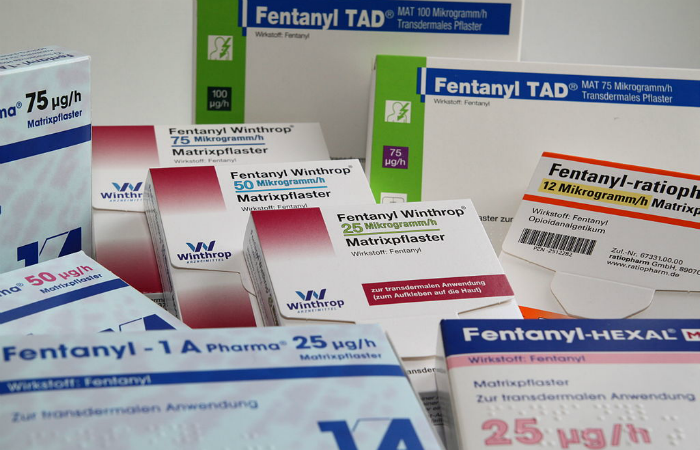What you need to know about the fatal drug fentanyl

A surge in news stories about the drug fentanyl has led to increased efforts to educate students about the hazards of the drug when used recreationally. Fentanyl, a fast-acting painkiller and sedative, is typically prescribed to patients with chronic pain or end-of-life cancer patients.
The drug – which street names include Apache, China girl, China white, dance fever, friend, goodfella, jackpot, murder 8, TNT, as well as Tango and Cash – can be difficult to manage.
"Fentanyl raises dopamine levels in the body, producing a high or state of euphoria," says Dr. Saara Schwartz, interim medical director of Student Health Services. "Compared to morphine, it is about 100 times stronger.
"The reason for the increase in deaths that have occurred is that both fentanyl and heroine are opioids, and when mixed together, can suppress respiration, which leads to death," Schwartz says.
The drug can also impair balance, coordination and the ability to think and react, especially when mixed with other drugs or alcohol. Other possible side effects include nausea, confusion, constipation and unconsciousness.
"Once you take it, your body develops a higher tolerance to the drug," Schwartz says. "The next time you take it, a larger dose is needed to get the same effect."
Fentanyl, paired with drugs like cocaine and heroin, provides users with a higher euphoria. The drug is most commonly used orally but can be smoked, snorted and injected.
Similar to many "date rape" drugs, fentanyl is odorless and colorless, which makes it nearly impossible to detect. Schwartz notes that there are many ways to protect yourself from the deadly drug, including only drinking from tamper-proof bottles and cans, and avoiding drinks from punch bowls. If a bartender is making the drinks, keep an eye out to ensure drugs aren't slipped in. In addition, don't leave drinks unattended and don't accept drugs that have not been prescribed to you.
"For addiction, there are different signs to look for," she says. "Addicts are only interested in seeking drugs, they ignore their friends and aren't interested in doing anything socially." Other signs of addiction include depression, anxiety, paranoia and hallucinations. Addiction to fentanyl can also disturb an addict's mental and emotional well-being leading to increased social problems and broken relationships.
In cases of overdose, irreversible damage or death can occur. If you or someone you know has come in contact with the drug and is experiencing respiratory depression, GI distress, feeling disoriented or is passed out, call 911 immediately.















